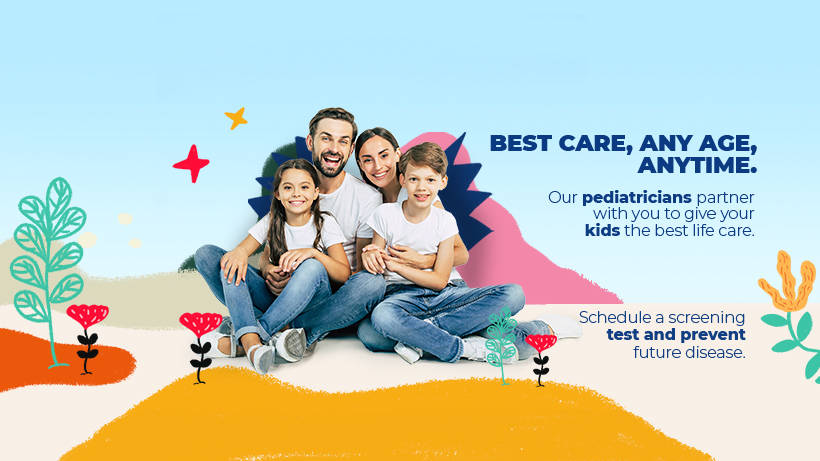As a parent or caregiver, you play a big part in shaping your children’s health for life. These decisions begin before your child is even born. Although nobody knows your children better than you, it’s normal not to have all the answers. That’s why keeping in touch with a pediatrician is so important. They will listen to your concerns and give the best care to your kid according to age and current conditions.
But how often do you take your kids to the pediatrician? If you answered “Only when they’re sick,” it is time for a screening. Please keep reading to find out what health screening is, why it is so important, and how it is practiced in newborns, kids 1 to 5 years old, and up until 15 years old.
What is a health screening?
A health screening is a routine test that checks for problems before symptoms appear. Newborns get their first screening tests soon after birth and frequently after that. Then, children are screened for different matters at routine checkups or sick visits to the doctor. Older kids up to 15 get screenings for growth, development, vision, hearing, dental health, or spine issues.
A screening test can involve several processes. Some of these are:
- A list of questions or a questionnaire.
- A physical exam.
- A blood test (For poisoning, anemia, high cholesterol, STDs.)
And how do you know the results are okay? Questionnaire results for screenings are known immediately. Blood test results may take a little longer. When a screening shows a positive outcome, there may be a problem. When the results aren’t clear enough, the pediatrician might request a follow-up test to find out more.
Like your children change as they grow up, screenings adapt to each growth stage and look for different issues. Next, we’re reviewing the conditions that screenings look for when performed in newborns, kids from 1 to 5, and up until they are 15 years old.
Newborns
In newborns, screenings are more often than at any other stage. The first seven days of life are exceedingly crucial; during the first month, there’s a higher risk for infections. Visiting the pediatrician for regular checkups will help you exclude congenital diseases or recognize symptoms of silent illnesses that you might have difficulty identifying at home.
Screenings in newborns can be general or specifics according to the baby’s health; however, most of them include the following matters:
- Check your baby’s weight, length, and head circumference.
- Receive advice on your baby’s eating and sleeping patterns.
- Check the skills learned by your baby, such as waving bye-bye, calling parents “mama” and “dada” or pointer finger.
- Do a physical examination.
- Update immunization schedules.
Kids 1 to 5 years old
At this age, your kid is growing fast in mind and body. When booking a health screening for your kids at this stage, your pediatrician will check up on several development matters such as :
- Weight, height, and calculate body mass index.
- Blood pressure, vision, and hearing.
- Eating, sleeping, and bathroom habits.
- Physical examination (This includes listening to the heart and lungs, observing motor and language skills).
5 to 15 years old
Did you know that only 70% of adolescents have a preventive visit to the doctor every four years? Getting a screening should be a priority for any kid at any age or stage, especially teens who experience many changes in their bodies, mindset, emotions, etc. Booking a screening for teens will help them keep track of:
- Weight gain or weight loss. In case of obesity or thinness, counseling may be indicated.
- Cervical abnormalities (for young women).
- Sexually transmitted infections (STIs).
- Depression, anxiety, or any other mental health condition.
- Tobacco, drugs, alcohol, or other substance use.
If the date for your kid’s next screening is getting close, this is a reminder to book your appointment today. In Da Vinci Health, our pediatricians will give you the best care every step of the way. Take your kids for a screening, prevent silent disease and help them grow safe and sound.


